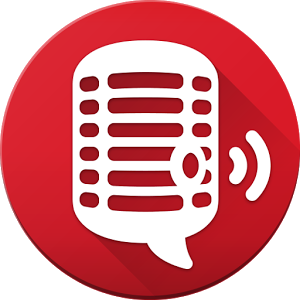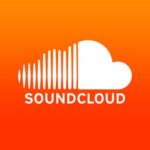 There’s been a lot of talk about measurement in the podcasting space as of late. As more attention has become focused on the medium in terms of press coverage and money, the pressure has been on for podcasters to come up with a standard for measuring podcast plays. Groups like IAB (and the Association of DownloadableMedia before it) have tried to come up with a consensus on how podcast downloads and plays should be measured. It’s been an ongoing process that’s taking feedback from hundreds of different digital media services and content creators.
There’s been a lot of talk about measurement in the podcasting space as of late. As more attention has become focused on the medium in terms of press coverage and money, the pressure has been on for podcasters to come up with a standard for measuring podcast plays. Groups like IAB (and the Association of DownloadableMedia before it) have tried to come up with a consensus on how podcast downloads and plays should be measured. It’s been an ongoing process that’s taking feedback from hundreds of different digital media services and content creators.
It looks like NPR didn’t want to wait for an industry-wide consensus on measurement. Last week, the public media giant released Public Radio Podcast Measurement Guidelines v1.1, a comprehensive document that shows how NPR defines what should (and shouldn’t) be counted as a podcast download. In the document’s introduction, it refers to the current state of podcast measurement as “the Wild West,” implying that, when it comes to podcast stats, anything goes. The document also notes that its “standards” were created solely by NPR and its related organizations. No input was considered from IAB before NPR went public with these guidelines.
On one level, NPR deserves some credit for trying to move the measurement process forward. But from a different angle, the organization has just trampled over podcast measurement systems that have been in place for years. In an article on Observer’s Business & Tech site, Rob Walch, VP of Podcaster Relations at LibSyn gave his thoughts on NPR’s measurement guidelines:
…Rob Walch, a vice president at Libsyn, sees the public radio guidelines differently. ‘I think the way they went about this was heavy handed and arrogant at best,’ Mr. Walch said in a phone call with the Observer. He objected especially to the document opening with the ‘wild west’ language, when, he argues, companies in the podcasting industry, such as his, Blubrry and Podtrac, have been discussing this question for some time. ‘The reality is that podcasting has been around for 11 years, and there are companies that understand podcasting methods better than NPR,’ he added.
Blubrry also crafted its own response to NPR’s measurement guidelines:
For the past 11 years, RawVoice / Blubrry and other leading companies in the podcasting space have worked tirelessly to provide accurate reporting to podcasters and media buyers. The ‘Wild West’ statement in the document is unwarranted, RawVoice / Blubrry is asking the coalition to retract the language, and publicly recognize those who have successfully championed meticulous, rigorous and precise podcast reporting.
It’s hard to say for sure how these new NPR guidelines will affect podcast statistics going forward. Due to the massive popularity of NPR shows, the organization can throw around a lot of weight in the podcasting space. If media buyers who place ads on podcasts look at NPR’s statistics method as the best way to gather download numbers, will those buyers then force other, more established statistics platforms, to fall in line?
Disclosure: I work part-time with the Blubrry support team and Podcaster News Executive Editor Todd Cochrane is the CEO of Rawvoice, parent company of Blubrry.
 Podcasting platform TalkShoe has been acquired by Canadian VoIP company iotum. Never heard of TalkShoe? Surprised to learn that the service is still around? You’re not alone. The company hasn’t made much in the way of podcasting news in recent years. Regardless, TalkShoe has been around for awhile. It works similar to BlogTalkRadio in that it allows users to create podcasts by simply dialing in over a phone line. Both TalkShoe and BlogTalkRadio launched a few years after the podcasting medium began. And while both services aren’t always at the forefront of conversations about podcasting, they’ve managed to find a base of loyal users who continue to keep them going.
Podcasting platform TalkShoe has been acquired by Canadian VoIP company iotum. Never heard of TalkShoe? Surprised to learn that the service is still around? You’re not alone. The company hasn’t made much in the way of podcasting news in recent years. Regardless, TalkShoe has been around for awhile. It works similar to BlogTalkRadio in that it allows users to create podcasts by simply dialing in over a phone line. Both TalkShoe and BlogTalkRadio launched a few years after the podcasting medium began. And while both services aren’t always at the forefront of conversations about podcasting, they’ve managed to find a base of loyal users who continue to keep them going. Player FM recently released version 3.5 of its podcasting app for Android. The
Player FM recently released version 3.5 of its podcasting app for Android. The  SoundCloud, the so-called “YouTube of audio,” isn’t really living up to that title for many users this weekend. SoundCloud’s
SoundCloud, the so-called “YouTube of audio,” isn’t really living up to that title for many users this weekend. SoundCloud’s  New Media Expo (NMX), the podcasting/blogging conference usually held annually in Las Vegas, has been a big draw for new media creators and industry players for years. But NMX has been conspicuously absent from the new-media landscape in 2016. Late last year, NMX founder Rick Calvert
New Media Expo (NMX), the podcasting/blogging conference usually held annually in Las Vegas, has been a big draw for new media creators and industry players for years. But NMX has been conspicuously absent from the new-media landscape in 2016. Late last year, NMX founder Rick Calvert  It’s become progressively easier over the years to produce and publish podcasts. But there are still a lot of moving parts involved in the process. Recording, editing, uploading, publishing to the web, and syndicating thru RSS are just a few of the steps needed to take a podcast from concept to reality. A veritable cottage industry has arisen to help guide podcasters thru all of the technology and services that are available for producing podcasts. But what if there was one tool that did everything? That’s where
It’s become progressively easier over the years to produce and publish podcasts. But there are still a lot of moving parts involved in the process. Recording, editing, uploading, publishing to the web, and syndicating thru RSS are just a few of the steps needed to take a podcast from concept to reality. A veritable cottage industry has arisen to help guide podcasters thru all of the technology and services that are available for producing podcasts. But what if there was one tool that did everything? That’s where  SoundCloud and Spotify are two big audio platforms that have made their fair share of podcasting news over the last year. Here’s a brief roundup of what the two services have been up to lately.
SoundCloud and Spotify are two big audio platforms that have made their fair share of podcasting news over the last year. Here’s a brief roundup of what the two services have been up to lately. The launch of SoundCloud Go puts the two services in more direct competition. SoundCloud’s financial status has been
The launch of SoundCloud Go puts the two services in more direct competition. SoundCloud’s financial status has been  It’s been almost six months since
It’s been almost six months since  I began listening to podcasts in late 2004. Since then, I’ve downloaded (tens of?) thousands of individual podcast episodes. Most of these were listened to once and immediately deleted. Why would I ever want to listen to an episode twice, I thought. It’s been well over a decade since those early days of the medium. At times, I think it’d be nice to revisit some of the first podcasts I listened to. Problem is, many of those shows have disappeared from the internet, while others that are still around no longer keep full archives of their episodes online.
I began listening to podcasts in late 2004. Since then, I’ve downloaded (tens of?) thousands of individual podcast episodes. Most of these were listened to once and immediately deleted. Why would I ever want to listen to an episode twice, I thought. It’s been well over a decade since those early days of the medium. At times, I think it’d be nice to revisit some of the first podcasts I listened to. Problem is, many of those shows have disappeared from the internet, while others that are still around no longer keep full archives of their episodes online. About a year ago, I
About a year ago, I 

 There’s been a lot of talk about measurement in the podcasting space as of late. As more attention has become focused on the medium in terms of press coverage and money, the pressure has been on for podcasters to come up with a standard for measuring podcast plays. Groups like IAB (and the Association of DownloadableMedia before it) have tried to come up with a consensus on how podcast downloads and plays should be measured. It’s been an ongoing process that’s taking feedback from hundreds of different digital media services and content creators.
There’s been a lot of talk about measurement in the podcasting space as of late. As more attention has become focused on the medium in terms of press coverage and money, the pressure has been on for podcasters to come up with a standard for measuring podcast plays. Groups like IAB (and the Association of DownloadableMedia before it) have tried to come up with a consensus on how podcast downloads and plays should be measured. It’s been an ongoing process that’s taking feedback from hundreds of different digital media services and content creators.